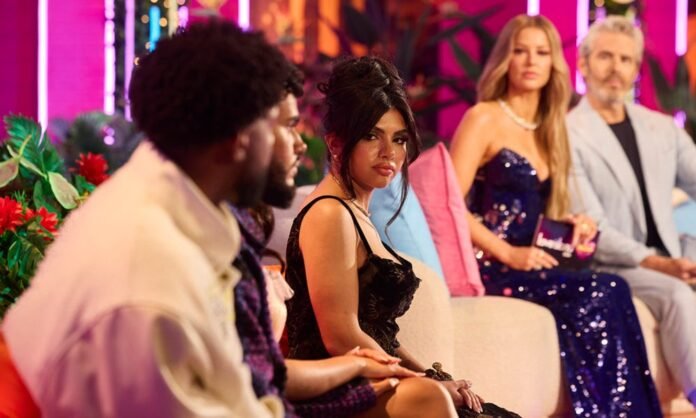Huda Mustafa at the Season 7 Reunion of "Love Island USA"
The recent Season 7 reunion of "Love Island USA," hosted by Ariana Madix and Andy Cohen, was a significant moment in the reality TV landscape, particularly for Huda Mustafa. As the show continues to capture the attention of audiences, it also raises important discussions about the nature of fandom and the impact of social media on contestants.
The Evolution of Reality TV Engagement
Reality shows have always thrived on what can be termed "attention currency." Initially, this meant high network ratings, with millions tuning in weekly for the drama. However, the landscape has shifted dramatically. Today, the success of shows like "Love Island USA" is less about traditional viewership and more about sparking conversations across social media platforms. This shift has transformed how fans engage with the content, often leading to intense discussions that can quickly turn toxic.
"Love Island USA": A Cultural Phenomenon
"Love Island USA," a spinoff of the U.K. original, has become one of the most talked-about reality series in recent years. The success of Season 6, with its breakout cast, set a high bar, and Season 7 has only intensified the conversation. With fan-favorite couples like Nicolandria and Chellace gaining massive followings, the show has solidified its status as a cultural obsession. However, this popularity has also brought to light troubling behaviors among fans.
The Dark Side of Fandom
As the Season 7 reunion approached, it became evident that the fandom had taken a darker turn. The show issued a "friendly reminder" to viewers about the importance of kindness, urging them to remember that the contestants are real people. This plea came in response to increasing online harassment and toxic behavior directed at cast members, particularly Olandria Carthen and Chelley Bissainthe, who faced racial discrimination.
Huda Mustafa’s Role in the Conversation
During the reunion, Huda Mustafa found herself at the center of a heated discussion. Olandria Carthen expressed her disappointment that Huda did not address the online racism directed at her and Chelley. Carthen’s emotional plea highlighted the mental toll that such harassment can take, emphasizing the need for accountability among cast members and their supporters.
The Impact of Social Media on Reality TV
The intersection of social media and reality TV creates a unique environment where viewers feel a sense of ownership over the contestants’ narratives. This phenomenon is amplified by the show’s format, which allows fans to vote on contestants’ fates, making them active participants rather than passive viewers. This engagement can lead to parasocial relationships, where fans develop one-sided connections with contestants, often resulting in extreme reactions to perceived slights.
The Role of Algorithms and Viewer Behavior
The algorithms that govern social media platforms often reward outrage and divisive content, creating a feedback loop that exacerbates toxic behavior. As viewers become more entrenched in their allegiances to specific contestants, the commentary shifts from being about the show to defending their favorites at all costs. This dynamic can lead to a hostile environment where criticism morphs into harassment.
The Need for Self-Awareness Among Viewers
Experts emphasize the importance of self-awareness in navigating these complex dynamics. Viewers must recognize when their reactions are disproportionate and take steps to disengage from toxic conversations. This might involve curating their social media feeds or taking breaks from online discussions to maintain their mental well-being.
The Future of Reality TV Engagement
As "Love Island USA" wraps up its season, there is an opportunity for reflection among viewers. The hope is that fans will reconsider their engagement strategies and the impact of their words on real people. The responsibility lies not only with the show and its producers but also with the audience to foster a healthier environment for all involved.
In a world where reality TV and social media intersect, the lessons learned from this season could pave the way for a more compassionate approach to fandom in the future.

